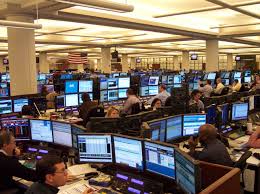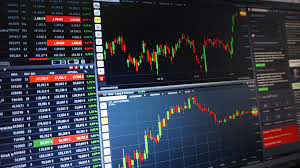Other than factors like inflation and interest rates, the currency exchange rate is an important determinant of a country’s relative level of economic health. You should note that exchange rates play an important role in a country’s level of trade that is critical to any free-market economy. That explains why exchange rates are most watched, analyzed, and manipulated by the government. Also, the exchange rates matter on a small scale too. For instance, the impact on the investor’s portfolio has an effect.
Differentials in Inflation
 A country that has a lower inflation rate exhibits rising currency value because its purchasing power increases relative to other currencies. Some of the countries with low inflation include Canada, USA, Germany, Switzerland, and Japan. Countries that have high inflation see depreciation in their currency. That is also accompanied by high interest rates.
A country that has a lower inflation rate exhibits rising currency value because its purchasing power increases relative to other currencies. Some of the countries with low inflation include Canada, USA, Germany, Switzerland, and Japan. Countries that have high inflation see depreciation in their currency. That is also accompanied by high interest rates.
Differentials in Interest Rates
You should note that inflation, exchange rates, and inflation rates are highly correlated. When you manipulate interest rates, the banks exert influence over both exchange rates and inflation. That means changing interest rates will have an impact on currency values and inflation.
Current Account Deficits
This is the balance of trade between the country and its trading partners. Ideally, it reflects all payments between countries for services, goods, dividends, and interest. A deficit in the current account shows that a county is spending more on foreign trade than what it is earning. In such a case, borrowing capital from other foreign sources makes up the deficit. That means a country requires more foreign currency than what it gets from the sale of its exports.
Public Debt
Some countries engage in deficit financing to pay for government funding and public sector projects. Although such activities stimulate the domestic economy, countries with large public debts and deficits are less attractive to foreign investors. That is because a large debt stimulates inflation, and if inflation is high, the debt will be serviced and paid off by cheaper real dollars. In worst scenarios, a government may print money to pay off such debts. In this way, it will increase the amount of money in supply resulting in inflation.
Terms of Trade
Terms of trade are regarded as the ratio that compares export prices to the import prices. If the price of exports rises by a greater rate than those of imports, its terms of trade are improved. That shows a greater demand for the country’s exports.



 Spread refers to the transaction cost. Currencies, unlike stocks, are not traded through a central exchange. Therefore different brokers will quote different spreads. This is a major consideration in every trader’s mind since choosing brokers with very high spreads is a way to kill off your account.
Spread refers to the transaction cost. Currencies, unlike stocks, are not traded through a central exchange. Therefore different brokers will quote different spreads. This is a major consideration in every trader’s mind since choosing brokers with very high spreads is a way to kill off your account.